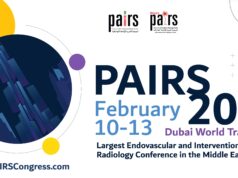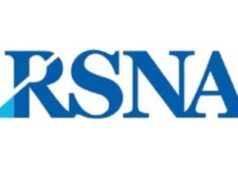
The Radiological Society of North America (RSNA) held its 12th Clinical Trials Methodology Workshop 7–13 January in San Diego, USA. This programme offers intensive training in clinical trial design and statistics for academic radiology faculty from around the world and is a phenomenal resource to grow the cadre of rigorously trained clinical trialists in interventional radiology, writes Michael Soulen, Philadelphia, USA.
The workshop offers morning didactic sessions, followed by small group sessions in which each “student” transforms a concept for their own clinical trial into a complete protocol, ready for submission upon return to their home institution. With a 1:1 faculty to student ratio, the trainees have ample opportunity to interact with all the faculty both within and outside of their protocol groups. The yield from this programme is rewarding: by three years, half the students have done a trial; half have received grant funding; and all have multiple publications. More importantly, the skills acquired enable trainees to continue to develop future trials. In addition, the week-long immersion provides an intimate environment for networking among young academicians.
The majority of interventional radiology literature still consists of retrospective single institution studies. Interventional radiology needs to up its game to match the standards of our colleagues in oncology and vascular disease. For the past few years I have been encouraging colleagues at major academic interventional radiology centres in North America and Europe to send junior faculty to the workshop, and it really paid off. Six of the 24 students (25%) at the 2017 workshop were interventional radiologists, and another two were accepted to the programme but were unable to attend.
Topics were varied. Frederic Deschamps from Institut Gustave Roussy in France developed a phase1/2 trial for a new percutaneous screw/cementoplasty device for pelvic fixation. Vamshi Kotha from Calgary, Canada wrote a multicentre randomised trial of bare metal aortic stenting after hybrid arch repair of type 1 dissections. Sailendra Naidu from Mayo Clinic, USA, designed a phase 1/2 study of prostate artery embolization for high-risk non-surgical candidates. There were multiple interventional oncology projects from the USA, including immune checkpoint therapy Nivolumab, with transarterial chemoembolization (TACE) for unresectable hepatocellular carcinoma (Stephen Hunt, University of Pennsylvania), TACE for paediatric hepatocellular carcinoma (Matthew Lungren, Stanford University), and quality of life in Barcelona Clinic Liver Cancer (BCLC) C patients treated with TACE, sorafenib, or both (Resmi Charalel, Cornell University). The workshop ends with a poster reception of all the students’ projects:
The Clinical Trials Methodology Workshop is a phenomenal resource from RSNA to grow the cadre of rigorously trained clinical trialkists in interventional radiology. If we keep training a half-dozen interventional radiology faculty each year, we will soon see the payoff with publication of prospective controlled trials, improving the level of evidence for interventional radiology therapies, and increasing the impact factor of our journals.
Michael Soulen is professor of Radiology at the Hospital of the University of Pennsylvania, Philadelphia, USA. He is the interventional radiology faculty and chair-elect for the Clinical Trials Methodology Workshop.










